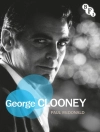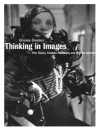This e-book is part of a twelve-volume series documenting the history of German film from its beginnings in 1895 to the present day using the collection holdings of the Deutsche Kinemathek. Each volume in e PUB format focuses on a decade and offers a concise overview of the cinematic masterpieces and milestones of that era, highlights famous films and films to be rediscovered, and pays tribute to the cinema, its audience and the creative minds behind the diversity of German film.
The complete work, which comprises over 2, 700 objects from all areas of the collection and spans 130 years, is also available as a printed book and as a PDF in German and English.
The DEUTSCHE KINEMATHEK is one of the world’s leading institutions for the collection, preservation, and presentation of audio-visual heritage. Hundreds of thousands of objects are permanently preserved in its archives and are available for research into film and television history. In addition to scripts, photos, posters, costumes and designs, the collection also includes film equipment. The Kinemathek curates film series and exhibitions and restores and digitizes films. Its diverse activities, including installations, publications, educational formats, and conferences, encourage visitors to discover the world of moving images.
Table of Content
Cover
Contents
Introduction
Anti-Semitic Infamy: Veit Harlan’s Jud Süẞ
Film Posters of the 1940s
Love on the ‘Home Front’
The Major Nazi Propaganda Film Ohm Krüger
Three Film Composers: Michael Jary, Peter Igelhoff, Norbert Schultze
‘Great Germans’ as Film Heroes in the Nazi State
Film Europe under the Swastika
Late Films in the ‘Third Reich’ (I/II): Münchhausen
Late Films in the ‘Third Reich’ (II/II): Die Feuerzangenbowle
The Anti-Nazi Film Hangmen Also Die!
The Daily Routine of War in the Guise of a Revue: Die Frau meiner Träume
Junge Adler: On the Ground of Wartime Reality
Testimonies of a Cinemagoer
Aesthetic Opposition: Der verzauberte Tag and Unter den Brücken
International Film Professionals as Victims of National Socialism
A Final Film Production: Das Leben geht weiter
The Year 1945
Acting Training for Film
Building East Germany: The Founding of DEFA
A New Beginning in the West
Open Field: Trümmerfilme in East and West
Marlene Dietrich in Postwar Germany
The Past and a New Beginning: DEFA’s Anti-Fascist Stance
Film and the Institutions of Its Administration
Films about the Recent Past: Lang ist der Weg and Morituri
The Importance of Women Film Editors (I/II)
Film Criticism in Postwar West Germany
Kulturfilm Themes: Atom and Nature
Remigrated German Film Professionals












